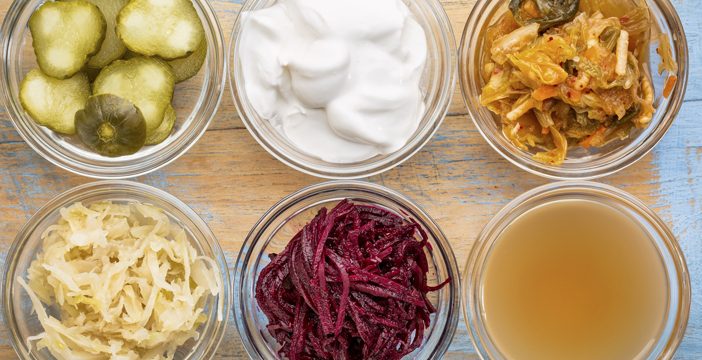
When it comes to managing diabetes, there’s plenty of advice: eat fewer carbs, exercise more and lose weight if needed. If you have type 2 diabetes, you’ve probably heard it all. But should probiotics also be a part of your management plan?
While the research is still inconclusive and data in this area is still emerging, some evidence suggests that probiotics might help people with diabetes or prediabetes manage their condition.
Discussions about probiotics are incomplete without mentioning the term prebiotics. While the words sound similar, and are related, they aren’t quite the same thing.
What are probiotics?
Probiotics refer to the bacteria and yeasts (also known as microorganisms) that naturally live in the human body, while prebiotics are the foods (mostly fibre) that nourish the probiotics and allow them to thrive. Probiotics are the “good” microorganisms which are thought to have many health benefits. There are many types of probiotics with different functions: some help digest food, others fight off infection and inflammation, and some improve metabolism, including how carbohydrates and sugar are used for energy.
Which foods are a good source of probiotics?
Probiotics are found in many fermented foods including:
- Yogurts that contain “live active cultures”
- Kombucha (fermented tea)
- Sauerkraut (fermented cabbage)
- Kimchi (Korean fermented vegetables)
- Miso (Japanese fermented soybeans)
- Buttermilk
- Kefir (fermented milk)
- Pickles
- Tempeh (fermented soybeans)
What are prebiotics?
Prebiotics are the preferred food source of probiotics. They come from high-fibre foods such as whole grains, and fruits and vegetables. Fibre in particular is well-known for lessening the impact of high-carbohydrate foods on blood sugar levels, blunting the spike they can cause.
Which foods are a good source of prebiotics?
Foods that are particularly rich in prebiotics are:
- Garlic
- Bananas
- Whole grains (e.g. corn, oats, wheat bran, farro, barley)
- Onions
- Asparagus
- Cocoa powder
- Chicory root
- Flaxseeds
- Seaweed
What are the potential health benefits of probiotics and prebiotics?
Recent studies have shown that the microorganism environment, also known as the microbiome in the body, plays an important role in diabetes. Type 2 diabetes and prediabetes are associated with excess inflammation, and this inflammation can make it more difficult for the body to properly move glucose from the blood into the body’s cells.
Probiotics and prebiotics work together in the gut to help improve microbiome imbalance and reduce inflammation to increase the production of blood glucose-lowering hormones such as incretin, and help reduce insulin resistance resulting in lower blood sugar.
What are the side effects of probiotics and prebiotics?
Unless you have a food allergy, probiotic and prebiotic foods are generally safe. Just keep an eye on the sugar content of yogurts and the sodium content in pickled fermented foods, which should be eaten in smaller portions.
What about probiotic supplements?
As with any supplement, it’s a good idea to check with your diabetes healthcare team before trying probiotic supplements.
While definitive research on probiotics and diabetes is lacking, a healthy microbiome may improve your overall health. When you’re living with diabetes, it can feel overwhelming to navigate all the variables that influence your blood sugar levels on a day-to-day basis. Looking after your gut health by including probiotics and prebiotics more often may be a positive addition to your diabetes management plan.


